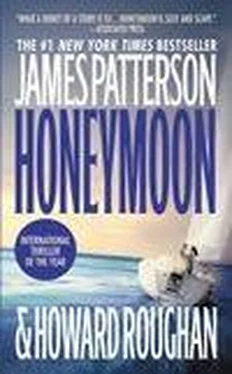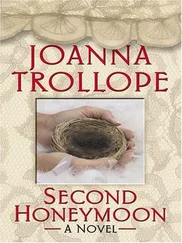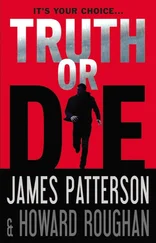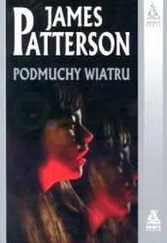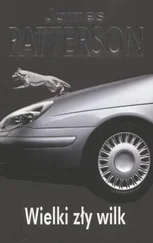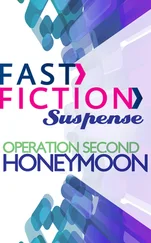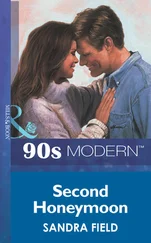“Excuse me?”
“What was Susan buying at the supermarket?”
“I heard you,” I said. “I just can’t believe that’s the first question you’re asking after everything I told you. How is that important?”
“I didn’t say it was.”
“Butter,” I blurted out. “Susan was going to bake cookies for the boys, but she didn’t have any butter. Pretty ironic, don’t you think?”
“How so?”
“Never mind.”
“No, go ahead,” said Dr. Kline. “Tell me.”
“She was an FBI agent; she could’ve died on the job many times over,” I said.
Then it was as if some switch inside me had been flipped on. Or maybe off. I couldn’t control myself; the words spilled angrily out of my mouth.
“But no, it’s some drunk asshole who plows into her on the way back from the supermarket!”
I was suddenly out of breath, as though I’d just run a marathon. “There. Are you satisfied?”
Dr. Kline shook his head. “No, I’m not, John. What I am is concerned,” he said calmly. “Do you know why?”
Of course I did. It was why the Bureau had suspended me. It was why my boss, Frank Walsh, insisted on my coming here to get my head examined.
Stephen McMillan, the drunk lawyer who killed Susan, was being released from prison in less than a week.
“You think I’m going to kill him, don’t you?”
Kline shrugged, deflecting the question. “Let’s just say people who care very much for you are worried about what you might be planning. So, tell me, John…are they worried for a good reason? Are you planning revenge?”
Chapter 6
RIVERSIDE, CONNECTICUT, IS about an hour’s drive from midtown Manhattan. Channeling my inner Mario Andretti, I drove it in forty minutes flat. All I wanted to do was get home and hug my boys.
“Jeez, Dad, you trying to crush me or something?” chirped Max, who was throwing a baseball against a pitchback on our front lawn when I pulled in. For a ten-year-old, the kid could really rifle it—all fatherly bias aside, of course.
I finally unwrapped my arms from around him. “So are you all packed?” I asked.
School had been out for a week. Max and his older brother, John Jr., were heading off to sleepaway camp the next morning for a month.
Max nodded. “Yeah. Grandma helped me get everything together. She even wrote my name in all my underwear with a Sharpie. Weird. Whatever .”
I would’ve expected nothing less from Grandma Judy. “Are she and Grandpa here?”
“No. They’re out shopping for dinner,” said Max. “Grandpa wanted steaks for our last night all together.”
When Susan died, her parents, Judy and Marshall Holt, insisted on moving up from Florida, where they’d retired. They said it would be impossible for me to raise the boys alone while I was still working at the Bureau, and they were right. Also, I think they knew that being around Max and John Jr. would help—if only a little bit—ease the pain of having lost their daughter, their only child.
They’d been nothing short of incredible since the day they arrived, and while I could never fully express my gratitude for their time, love, and sacrifice, the least I could do was treat them to a four-week Mediterranean cruise while the boys were off at camp. I was just glad I paid for it while I was still getting a paycheck from the Bureau. Not that I would’ve changed my mind. It’s that Marshall and Judy would’ve never accepted the trip. That’s the kind of people they are.
“Where’s your brother?” I asked Max.
“Where else?” he answered with an eye roll underneath his Yankees cap. “On his computer. The geekazoid.”
Max went back to striking out imaginary Red Sox batters while I headed inside the house and upstairs to John Jr.’s room. Naturally, the door was closed.
“Knock, knock,” I announced, walking right in.
John Jr. was indeed sitting at his desk, in front of his computer. He immediately threw up his hands at the sight of me.
“C’mon, Dad, can’t you knock for real?” he said with a groan. “Haven’t you ever heard of the right to privacy?”
I chuckled. “You’re thirteen, dude. Talk to me when you can shave.”
He rubbed the peach fuzz on his chin, smiling. “It might be happening sooner than you think,” he said.
He was right. My older boy was growing up fast. Too fast, maybe.
John Jr. was eleven when he lost his mother, a very tricky age. Unlike Max, J.J. was old enough to feel everything an adult would feel—the full pain and anguish, the overwhelming sense of loss. But he was still just a kid. That’s what made it so unfair. The grieving forced him to mature in ways no kid should have to endure.
“What are you working on?” I asked.
“Updating my Facebook page,” he answered. “They won’t let us do it at camp.”
Yes, I know. That’s one of the reasons why you’re going, sport. No video games, cell phones, or laptops allowed. Only fresh air and Mother Nature.
I walked behind him and shot a peek at his MacBook. He instantly flipped out, slapping his palms against the screen. “Dad, this is personal!”
I never wanted to be a parent who spied on his kid or secretly logged on to his computer to make sure he wasn’t saying or doing things he wasn’t supposed to. But I also knew that there was nothing “personal” about the Internet.
“Once you post something online, anyone in the world could be looking at it,” I said.
“So?”
“So you need to be careful, that’s all.”
“I am,” he said. He was looking away.
It was moments like these when I really missed Susan. She’d know just what to say and, equally important, what not to say.
“John, look at me for a second.”
Slowly, he did.
“I trust you,” I said. “The thing is, you have to trust me, too. I’m only trying to help you.”
He nodded. “Dad, I know all about the creeps and stalkers out there. I don’t give out any personal information or stuff like that.”
“Good,” I said. And that was that.
Or so I thought. Walking out of J.J.’s room, I had no idea, no clue at all, that I was just about to crack one of the biggest and craziest cases of my career.
And as fast as you can say “Dinner is served,” it was all about to begin.
Chapter 7
“DO YOU KNOW what the Italians call dining outdoors?” asked Judy, looking at her two grandsons as if they were sitting at desks in a classroom instead of at our round patio table.
Susan’s mother had been an elementary school teacher for twenty-eight years. Old habits sure die hard.
“Honey, give the boys a break,” said Marshall, cutting into a full pound of New York strip. “School’s out.”
Judy happily ignored him. They’d been married even longer than she’d been a teacher.
“Alfresco,” she continued. “It means ‘in the fresh air.’” She then repeated the word slowly, as it would have been pronounced on one of those classic Berlitz language tapes. “Al-fres-co.”
“Hey, wait a minute, I know him!” announced Marshall, shooting the boys a wink from behind his wire-rimmed glasses. “Al Fresco! He and I fought in Vietnam together. Good old Al Fresco. What a character.”
Max and John Jr. cracked up. They always did at their grandfather’s jokes. Even Judy cracked a smile.
As for me, I was smiling, too. I was looking around the table at a family that had been devastated by a tragedy but had somehow managed to regroup and carry on.
Gee, any thoughts of regrouping and carrying on yourself, O’Hara? Maybe get your badge back? Some semblance of a life? Yes? No?
A couple of minutes later, Judy was even doing something she hadn’t done since Susan’s death. She was talking about someone else’s death. For a while there, the mere mention of the word would trigger her crying.
Читать дальше
